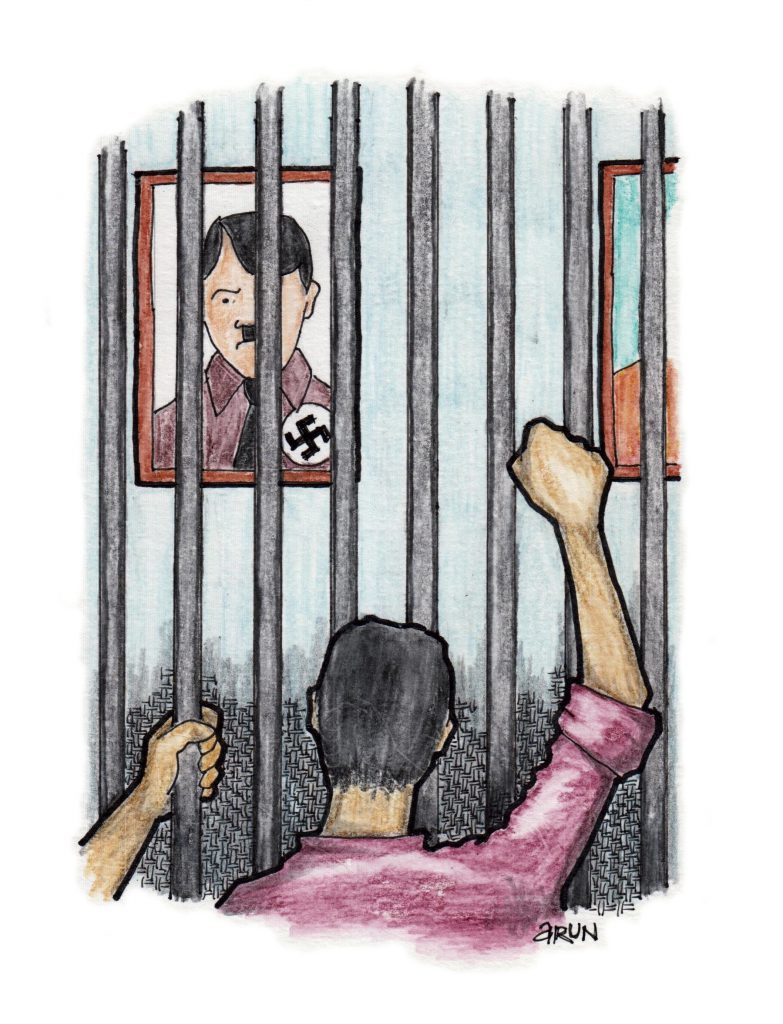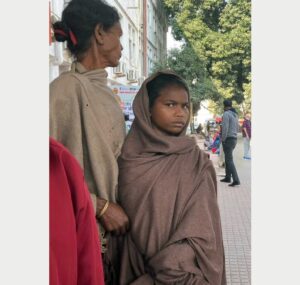
BK-16 Prison Diaries: Ramesh Gaichor on the Elgar prisoners’ defiance of the neo-Peshwai prison system

To mark six years of the arbitrary arrests and imprisonment of political dissidents in the Bhima Koregaon case, The Polis Project is publishing a series of writings by the BK-16, and their families, friends and partners. (Read the introduction to the series here.) By describing various aspects of the past six years, the series offers a glimpse into the BK-16’s lives inside prison, as well as the struggles of their loved ones outside. Each piece in the series is complemented by Arun Ferreira’s striking and evocative artwork. (This piece has been translated into English by Vernon Gonsalves, read the original in Marathi here, and the Hindi translation by Prashant Rahi here.)
Jinhe naaz hai Hind par unko lao Jinhe naaz hai Hind par woh kahaan hain? (Bring those who are proud of this land Where are they who are proud of this land?) These lines of Sahir Ludhianvi, written shortly after the country gained independence, still strike a deep chord. But today, in what way will the neo-Peshwai government of this country receive these words, and what will it do to poets and song-writers like Sahir? Perhaps it will put them behind towering impenetrable walls, erected over segregated acres of land, under the watchful eye of 24-hour security guards, armed with firearms, lathis, and belts. In this country, where things like the constitution, human rights, equality and humanity once held sway, these walls create a calculated and oppressive aura of awe around the khaki uniform that symbolises the police’s reign of terror. It is a site of state-sponsored trampling of basic…
Related Posts


Donald Trump’s Master Economic Plan I Opinion by Yanis Varoufakis




